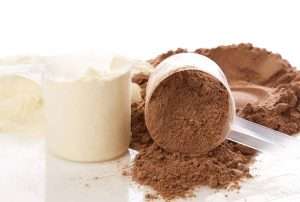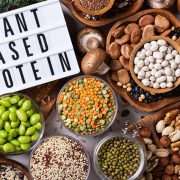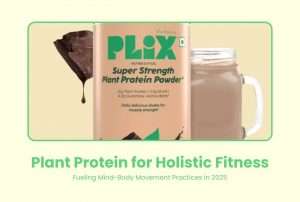Plant-Based Protein Vs Whey Protein

Protein is crucial for endurance athletes to recover, rebuild, and keep training. We know how much is needed and when’s best to consume it, but here we’ll delve into reasons for plant protein to be as effective as whey in building muscles.
Whey protein powders have been the go-to since the bodybuilding boom of the 80s, and clever marketing has persuaded both athletes and the wider population that protein powder is key (or at least a handy shortcut) to optimal health and performance.
But meat and dairy are no longer considered the only viable sources of protein. As plant-based diets gather momentum, it’s easier and more delicious than ever to explore the benefits of plant protein sources instead of the old standbys like whey.
Plant-Based Protein vs Whey Protein

There are many negative inglorious issues surrounding the use of whey protein powder for endurance and performance. It’s effective at building muscles, but in my opinion, that’s where the benefits stop, and, in a number of cases, the harmful impacts appear.
Plant protein sources build muscles and aid recovery as well or even better than whey, but they can also improve our overall health, and they help to deliver a broader range of beneficial nutrients and are also very much better for the environment.
Of course, athletes often choose whey because it’s a complete protein source: it contains all nine essential amino acids we need to consume with our diet. Most animal products are complete proteins, while plant-based protein sources often need to join forces to provide all nine amino acids (a popular example is beans and rice, which contain complementary amino acids and together make a complete protein).
But it’s a mistake to think no plant sources provide complete proteins. Soy, quinoa, pea, hemp, chia, and sunflower protein are just some of the complete plant proteins out there — which makes them just as convenient as whey when it comes to getting your body the amino acids it needs for building muscles.
Plant-Based Protein Powders

The global plant-based protein market was valued at $10.5bn in 2017 — this included vegan protein, meat substitutes, supplements and nutritional powders — which clearly shows that people are ready to re-assess their protein intake in favour of sustainability, healthier habits and ethical gains. Now, Plant-Based Protein vs Whey Protein, which is better for you. You should know that choosing a vegan brand simply means that the proteins are coming from plant-based products like nuts seeds legumes etc. rather than animal-based products. However, it’s important to keep in mind that soy is the only complete vegan protein, containing all nine essential amino acids. Even though there are plenty of ways to get protein with a plant-based vegetarian diet, vegan protein powder can help you meet your needs in a jiffy. Some misrepresentations and myths about vegan protein powders are that you can’t get enough protein with them, or they won’t keep you full or provide all the essential amino acids but many vegan powders contain 15 to 30 grams of protein per serving, which is totally on par with whey protein powders.















